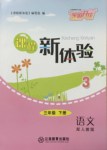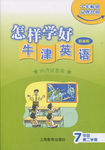题目内容
| 完形填空。 | ||||
| The Making of a Surgeon How does a doctor recognize the point in time when he is finally a "surgeon"? As my year as chief resident (进修医生) drew to a close, I asked myself this question 1 more than one occasion. The answer, I concluded, was 2 .When you can say to yourself, "There is no surgical patient I cannot treat competently, treat just 3 or better than any other surgeon"- then, and not until then, you are 4 a surgeon. I was 5 that point. 6 , for example, the emergency situations that we met almost every night. The first few months of the year I had 7 the ringing of the telephone. I knew it meant another critical decision to be 8 .Often, after I had told Walt or Larry what to do in a particular 9 , I'd have trouble getting back to sleep. I'd 10 all the facts of the case and, often, wonder 11 I had made a poor decision. More than once at two or three in the 12 , after lying awake for an hour, I'd get out of 13 , dress and drive to the hospital to see the patient myself. It was the only 14 I could find the 15 of mind I needed to relax. Now, in the last month of my residency, 16 was no longer a problem. Sometimes I still couldn't be sure of my decision, but I had learned to 17 this as a constant problem for a surgeon. I knew that with my knowledge and experience, any decision I'd made was bound to be a 18 one. It was a nice feeling. This all sounds conceited (自负的) and I guess it is - 19 a surgeon needs conceit. He needs it to encourage him in trying moments when he's bothered by the 20 and uncertainties that are part of the practice of medicine. He has to feel that he's as good as and probably better than any other surgeon in the world. Call it conceit -call it self-confidence; whatever it was, I had it. | ||||
|

 芝麻开花课程新体验系列答案
芝麻开花课程新体验系列答案 怎样学好牛津英语系列答案
怎样学好牛津英语系列答案| 完形填空 | |||
| In 1982, Steven Callahan was crossing the Atlantic alone in his sailboat when it struck something and sank. He got into a lifeboat, but his supplies were __1__. His chances of surviving were small. __2__ when three fishermen found him 76days later, he was alive-much __3__ than he was when he started, but alive. His __4__ of how he survived is fascinating. His cleverness-how he __5__ to catch fish, how he evaporated(使蒸发) sea water to __6__ fresh water- is very interesting. But the thing that __7__ my eye was how he managed to keep himself going when all hope seemed lost, and there seemed no __8__ in continuing the struggle. He was starved and __9 exhausted. Giving up would have seemed the only possible choice. When people __10 these kinds of circumstances, they do something with their minds, which gives them the courage to keep going. Many people in __11 desperate circumstances __12 in or go mad. Something the survivors do with their thoughts helps them find the courage to carry on __13 difficulties. "I tell myself I can __14 it," wrote Callahan in his book. "Compared to what others have been through, I'm fortunate, I tell myself these things over and over, __15 up courage… I wrote that down after I read it. It __16 me as something important. And I've told myself the same thing when my own goals seemed __17 off or when my problems seemed too terrible. And every time I've said it, I've always come back to my __18 . The truth is, our circumstances are only bad __19 to something better. But others have been through the much worse, that is, in comparison with what others have been through, you're fortunate. Tell this to yourself over and over again, and it will help you __20 through the rough situation with a little more courage. | |||
| ( ) 1: A. full ( ) 2: A. And ( ) 3: A. th inner ( ) 4: A. attitude ( ) 5: A. helped ( ) 6: A. make ( ) 7: A. attacked ( ) 8: A. operation ( ) 9: A. partly ( )10: A. deal ( )11. A. similarly ( )12: A. bring ( )13: A. for the lack of ( )14: A. make ( )15: A. rolling ( )16: A. defeated ( )17: A. far ( )18: A. feelings ( )19: A. related ( )20: A. see |
B. rich B. Yet B. stronger B. decision B. pretended B. absorb B. caught B. taste B. completely B. defend B. differently B. take B. in the face of B. carry B. using B. told B. long B. senses B. measured B. cut |
C. few C. Still C. worse C. instruction C. managed C. choose C. froze C. message C. hardly C. survive C. gradually C. break C. in exchange for C. follow C. building C. introduced C. ever C. ideas C. contributed C. get |
D. enough D. Thus D. healthier D. account D. intended D. replace D. cheated D. point D. generally D. observe D. commonly D. give D. as a result of D. respect D. making D. struck D. even D. influences D. compared D. think |
| 完形填空。 | ||||
| Wishing to encourage her young son's progress on the piano, a mother took her boy to a Paderewski concert. After they were seated, the mother 1 a friend and walked down the aisle to greet her. Seizing the 2 to explore the wonders of the concert hall, th Qe little boy rose and went 3 a door marked" NO ADMITTANCE". When the house lights dimmed (变暗) and the concert was about to begin, the mother returned to her 4 and discovered that the child was missing. Suddenly, the curtains 5 and spotlights focused on the stage. In horror, the mother saw her little boy sitting at the keyboard, 6 out"Twinkle, Twinkle, Little Star". At that moment, the great piano master 7 his entrance, quickly moved to the piano, and 8 in the boy's ear,"Don't 9 . Keep playing." Then leaning over, Paderewski reached down with his left hand and began 10 in a bass (低音 ) part. Soon his right arm reached 11 to the other side of the child and he added a running obbligato (伴奏). 12 ,the old master and the young boy 13 a frightening situation into a wonderfully creative 14 . That's the way it is in life. 15 we can accomplish (完成 ) on our own is 16 noteworthy. We try our best, but the 17 aren't exactly graceful flowing music. 18 when we trust in the hands of a Greater Power, our life's work truly can be beautiful. Next time you set 19 to accomplish great feats, listen carefully. You can hear the 20 of the Master, whispering in your ear," Don't quit. Keep playing." | ||||
|
| 完形填空。 | ||||
| I am not one who is frightened easily, but I must admit that one night I saw a figure th at really struck terror into my heart. I 1 it was a cold moon - lit night when I was walking home. It was the first night of my whole life that I had been outside 2 at such a late time. There were 3 few people on the road at night. Even during the day, the road was used by only some. On that night, it seemed even 4 . While I was walking, I could hear some 5 made by creatures that love the night world. I moved really fast towards home. It was 6 because I was hungry. More importantly, I was eager to get back home for warmth. All of a sudden, I 7 an old lady in a short distance away. Her 8 was covered with a white cloth. She was 9 to me, I think. I was a bit 10 . I wanted to know 11 she was there at that time of the late night. I stopped walking for a while. As I 12 there, stories about ghosts (鬼) began to come to my mind one after 13 . I was soon 14 fear and started to run as fast as I could. When I reached home I could 15 speak. The next day, however, I 16 that place again to make sure that the woman was not a ghost but indeed a real person. But I could find no footprints there 17 a banana plant. I realized then that it was the banana plant with its leaves moving in the gentle wind that 18 like a woman waving her hand. I had indeed made a fool of myself; but after the 19 night's experience, this 20 was small relief to me. | ||||
|
 32.A.forgive B.comfort C.pity D.accept
32.A.forgive B.comfort C.pity D.accept